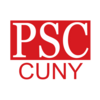Baruch College Hybrid Work Petition
President Wu, Provost Essig, Vice President Cobb, members of the Baruch administration

Baruch needs a robust remote work agreement beginning in January 2023 and the administration must allow broader engagement with instructional staff as stakeholders in future decision-making processes.
Sponsored by
To:
President Wu, Provost Essig, Vice President Cobb, members of the Baruch administration
From:
[Your Name]
We write to you as Baruch College’s Instructional Staff and as members of the PSC-CUNY bargaining unit to demand both your immediate support in preserving a robust remote work agreement beginning in January 2023 and your broader engagement with instructional staff as stakeholders in future decision-making processes. We believe that a flexible work agreement represents the most practical and equitable approach to the future of staff work at Baruch College. It is also mutually beneficial to faculty, staff, and students.
As we saw during the pandemic, despite a steep learning curve CUNY Instructional/Professional staff proved that they could effectively work in a hybrid environment, combining in-person and remote work. This flexible approach to professional staff duties has been demonstrated to be a viable option for the students, faculty, staff, and the broader university community.
Furthermore, a flexible approach to academic staff work mirrors significant shifts in the student population and in the workforce. There is a growing population of remote students, particularly in Graduate Level programs, who benefit significantly from virtual advising and related services. More importantly, if the point of Baruch College is to prepare students to enter the contemporary workforce, we should look like the workforce that students are entering. Not having remote work is going back to a former, outdated era of what constitutes higher education.
Finally, preserving a remote work option will help retain trained, experienced staff. Simply put, if this option exists elsewhere but not at CUNY, our best employees will leave to take positions with other, more forward-thinking employers whose approach to work modality is more in line with the larger contemporary world of work. Professional staff members have indicated to the Baruch PSC chapter again and again that they will seek employment elsewhere if exclusively fully in-person work returns.
Baruch professional staff members are happier when they are trusted to have more control over when and where they work. Workers who feel respected are more productive workers who will provide the robust, effective service that Baruch students need and deserve.
DEMANDS:
We demand that President Wu and the administration include a significant number of professional staff in further decision-making processes about the future of work at Baruch College. Staff have reported a pattern of disrespect or disregard, beginning with the lack of inclusion in the College’s “Task Force for the Future” in 2020, to which a subcommittee on staff issues was added as an afterthought, months after the taskforce was initially established with subcommittees focused on the needs of every constituency other than staff. Professional staff members demand to be included as major stakeholders in future types of committees and other key decision-making entities, and staff should have a significant say in who represents them in these groups; they should not simply be appointed by senior administration.
Furthermore, we demand attention to building equity between faculty and professional staff through allowing more flexibility. Faculty are empowered to work from home and keep in touch with students using technology on days when their on-campus presence is not absolutely necessary to the completion of their work. Professional staff should be afforded the same level of professional courtesy and trust.
We demand that the Baruch college administration ask CUNY to negotiate now with the Professional Staff Congress to create a generous flexible and remote work agreement that will strengthen the workings of the University for years to come. As that is underway, at Baruch we want three days working in-person and two days working remotely per every five-day work week.
Relatedly, we further demand professional development support for supervisors to help conceptualize what it means to be leaders of staff in this new hybrid environment. In the post-pandemic era, supervising staff is no longer about checking to see who arrives on time and is at their desk working all day. It is about thinking critically about which tasks must be done in person and which can be done remotely, what it means to be productive, and how to ensure timely completion of tasks while enabling staff to balance life and work. The role of the supervisor has changed, and supervisors will require professional development to do it well.
Thank you for your attention.
Respectfully,
